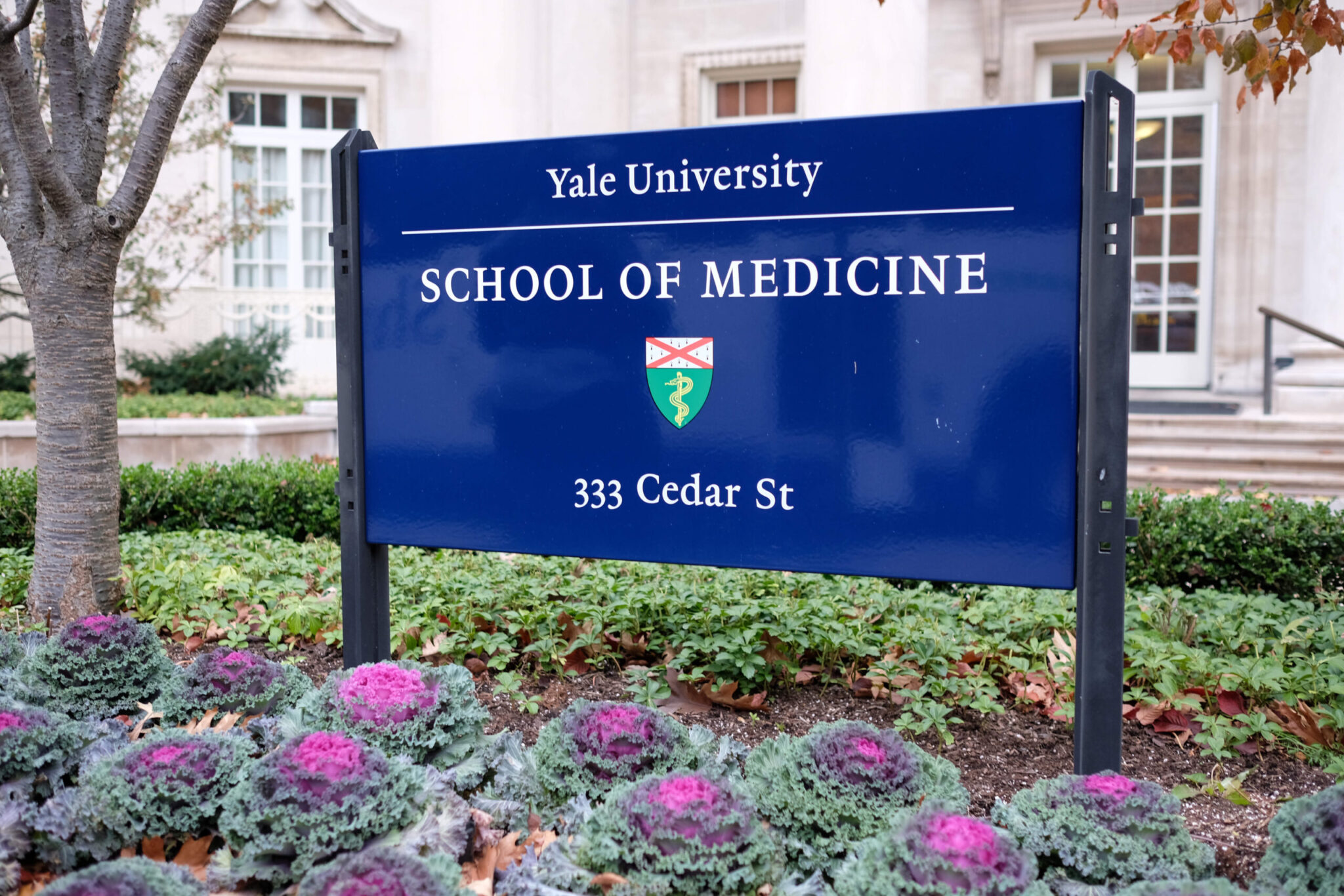Research team secures $25 million grant to develop mRNA cancer vaccine
The joint team of researchers is looking to use the grant money to revolutionize cancer defense by orchestrating immune responses through mRNA technology.

Eric Wang, Contributing Photographer
A joint team of Yale, University of Georgia and Emory University scientists have received a $25 million government grant to develop an mRNA cancer vaccine.
Founded in 2022 to fund high-risk, high-reward research programs, the Advanced Research Projects Agency for Health selected the multi-institutional team to receive its inaugural award. The scientists aim to orchestrate immune system responses using mRNA to provide a personalized defense against foreign invaders.
“It’s an accelerator of a project that has already been going on for probably five years,” Richard Edelson, a dermatology professor at the Yale School of Medicine and one of the study’s principal researchers, said. “It galvanizes our group and gives us the chance to push harder and test.”
Inspired by the Defense Advanced Research Projects Agency, a federal program that funds scientific defense initiatives and technological developments, ARPA-H aims to apply a similar approach to the medical field. The program is designed to catalyze breakthroughs in the prevention, detection and treatment of major diseases like Alzheimer’s, diabetes and cancer.
Additionally, ARPA-H recognizes that some of the most innovative and high-impact healthcare ideas may not fit traditional funding mechanisms due to factors like high risk, large costs, long timeframes and complex coordination. The program seeks to level the playing field between the commercial biotechnology sector and fundamental research, which is often funded by the federal government.
“ARPA-H will pursue ideas that break the mold on how we normally support fundamental research and commercial products in this country,” President Joe Biden said in March 2022. “[These are] ideas so bold no one else, not even the private sector, is willing to give them a chance.“
The team that earned this chance is led by co-principal investigators Edelson and Philip Santangelo, a biomedical engineering professor at the Georgia Institute of Technology and Emory University. Though their labs are 900 miles apart, a strong intellectual bond links Edelson and Santangelo’s research together.
“I think it’s the team that makes these things happen,” Santangelo said. “You get out way more than you put in if you’re working with the right team, and that’s when big things happen.”
The research combines Santangelo’s expertise in mRNA with Edelson’s expertise in dendritic cells. mRNA, the basis of the COVID-19 vaccines, is a cell’s genetic messenger, providing instructions to ribosomes within dendritic cells for building specific proteins. These proteins, when placed on the outer membrane of the cell, allow dendritic cells to detect foreign invaders. Dendritic cells serve as regulators in immune responses. Then, the cells present those invaders to killer T cells, which surround and engulf the invaders.
Santangelo and Edelson told the News they seek to develop synthetic mRNA that will carry instructions for cancer-specific antigens to dendritic cells.
By programming dendritic cells with synthetic mRNA, researchers can precisely instruct the immune system to target cancer-specific antigens without attacking healthy cells. Healthy cells that were modified to include unrecognized proteins using mRNA might have otherwise been treated as a foreign entity.
Still, Santangelo and Edelson must overcome several hurdles. One particular challenge, according to Edelson, is protein processing.
“[Protein processing is] trying to figure out which nanoparticles fragment from that protein will be effectively processed and presented by that person’s dendritic cells to their T cells,” Edelson said. “There’s a lot of intelligent guesswork that goes into finding out the specific mutations that may arise.”
Santengelo recognized that breakthroughs often involve considerable complexities and difficulties. Even with this conservative approach, he said he is confident that progress will come out of the research.
“We’re not naive, we know how difficult this stuff is,” Santangelo said. “We have to pick our winners to move forward into the clinic, but I would say that certainly there should be winners.”
ARPA-H is led by Dr. Renee Wegryzn.







